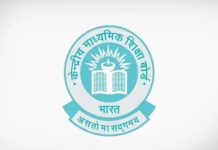Question :State the meaning of organic farming. Discuss how does it help in promoting sustainable development.
The correct answer is -Organic farming refers to a farming system that relies on ecological processes, biodiversity, and natural cycles to produce crops and raise animals. Organic farming practices avoid the use of synthetic pesticides, fertilizers, and genetically modified organisms (GMOs) and prioritize the use of renewable resources and conservation of soil and water.
Organic farming helps to promote sustainable development in several ways:
-
Environmental sustainability: Organic farming practices are designed to minimize the negative impact of farming on the environment. Organic farmers focus on building healthy soil, protecting biodiversity, and minimizing water use. By avoiding the use of synthetic chemicals and GMOs, organic farming helps to prevent soil erosion and water pollution, and promote the health of the ecosystem.
-
Economic sustainability: Organic farming can be a more economically sustainable model of farming for small-scale farmers. Organic farmers often use traditional and local knowledge to produce crops, which reduces dependence on external inputs such as fertilizers and pesticides. Additionally, organic farming often involves direct marketing, which can provide farmers with better access to local markets and higher prices for their products.
-
Social sustainability: Organic farming can have positive impacts on social sustainability by promoting more equitable and fair farming practices. Organic farming can provide more opportunities for small-scale farmers and support community-based food systems. By prioritizing social equity and justice, organic farming can contribute to creating more sustainable and resilient communities.


